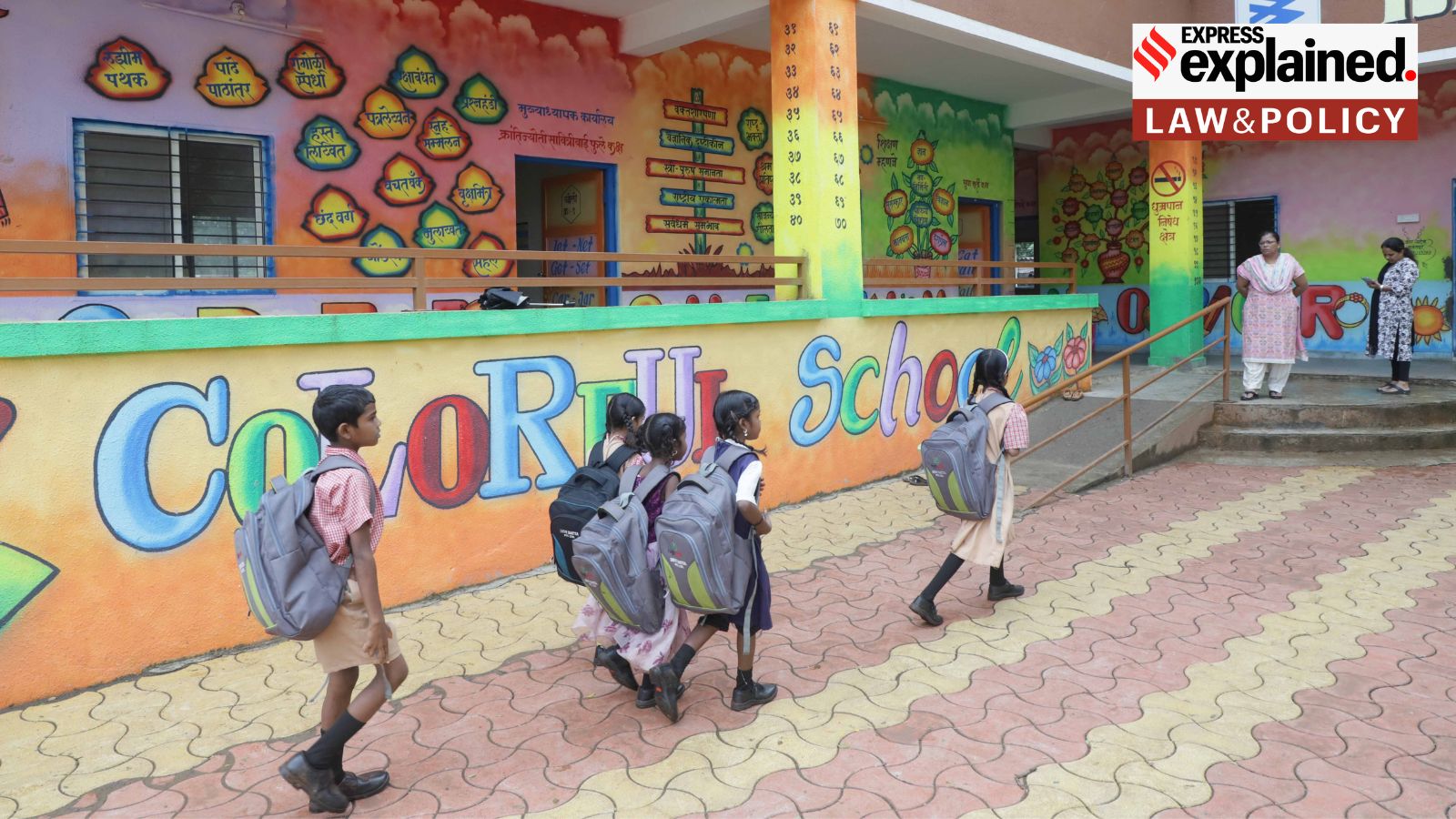Why Maharashtra is exempting private schools from RTE quota admissions
Maharashtra joins Kerala and Karnataka to dilute private schools’ obligations under The Right of Children to Free and Compulsory Education Act, 2009. Here is why.
 The children up to class eight will be admitted throughout the academic session in age-appropriate classes under the Right to Education Act (RTE). (Express Photo By Pavan Khengre/Representational)
The children up to class eight will be admitted throughout the academic session in age-appropriate classes under the Right to Education Act (RTE). (Express Photo By Pavan Khengre/Representational)A key aspect of The Right Of Children To Free And Compulsory Education Act, 2009 (RTE Act) is the obligation placed on private schools to ensure that 25 per cent of Class 1 students admitted must belong to “weaker section and disadvantaged group in the neighbourhood”. Students admitted under this quota are given fee concessions, with the state government meant to reimburse private schools for the same.
Maharashtra, on February 9, became just the latest state to have passed rules under the RTE Act to dilute this obligation. Here is why.
But first, what exactly does the new rule state?
The new rule states that the “local authority shall not identify the private unaided school, for the purposes of 25 per cent admission of disadvantaged group and weaker section under the Maharashtra Right of Children to Free and Compulsory Education Rules, 2013, where government schools and aided schools are situated within one-kilometre radius of that school.”
This means that private schools within a 1 km radius of a government or government-aided school (which receives money from the government) will no longer have to observe the 25% requirement. Instead, students in these neighbourhoods will be considered for admission into said government or aided schools first.
This exemption would also apply to private schools established in the future, as long as they are built within a 1 km radius of a government or aided school. In case there are no government or aided schools in the vicinity, the notification states that private schools will be identified for RTE admissions.
With this new rule, Maharashtra has joined Karnataka and Kerala as states that have imposed this new regime to exempt private schools from providing RTE admissions.
Karnataka introduced the rule in December 2018, and specifically referenced the Kerala rules which were introduced in 2011. In Kerala, the fee concession for students is only made available to RTE quota students if there are no government or aided schools “within walking distance”, which is 1 km for students joining in Class 1.
Why have states introduced such exemptions?
In Karnataka, when the rule was introduced in 2018, the state law minister Krishna Byregowda said: “The primary intention of RTE is to provide education to all classes of students… Till date, Karnataka had allowed parents to admit children in private schools despite having government schools in the same neighbourhood. This has resulted in the enrollment ratio [in government schools] dropping drastically.”
Private schools and teachers’ organisations have also highlighted that state governments have also often failed to reimburse the fees for students admitted through this quota. According to Section 12(2) of the RTE Act, state governments are bound to reimburse expenses incurred by the school per-child, or the fee amount, whichever is less.
In Maharashtra, the Maharashtra English School Trustees Association (MESTA) threatened to boycott RTE admissions last December citing pending payments of Rs. 1800 crore in reimbursements. This figure has now risen to Rs. 2000 crore as reported by The Indian Express.
“It is their own compulsion now, rather than our demand,” S C Kedia, the secretary of the Unaided Schools Forum, stated regarding the implementation of the rule.
How has the new rule been received?
This issue has invited polarising responses. On one hand, private unaided schools have welcomed the new rules.
“This is a good decision and we welcome it. The number of RTE admissions in private schools will considerably reduce… the number of students in government schools will also increase,” Rajendra Chorge, the vice president of the Independent English Schools’ Association in Maharashtra, had previously told The Indian Express.
Others, however, have been highly critical. Shantha Sinha, a member of the sub-committee of the Central Advisory Board of Education which played a crucial role in drafting the RTE Act, spoke to The Indian Express on the matter.
“Section 12(1)(C) of the RTE Act that mandates 25 per cent reservation of seats to children from disadvantaged backgrounds is in the direction of contesting the education apartheid in the country, and bringing parity and equality of opportunity for all children. Maharashtra government’s amendment is unjustified” Sinha said.
Similarly, Matin Mujawar, a Pune-based RTE activist, said that “one of the intentions of this law was to enable students from marginalised backgrounds to get education in good schools”. He said: “The small window through which some disadvantaged students got to access good education in private schools is now being effectively closed.”
- 01
- 02
- 03
- 04
- 05





































